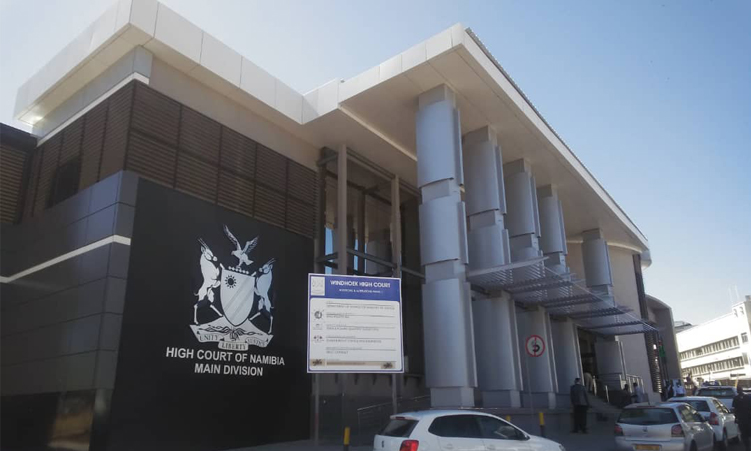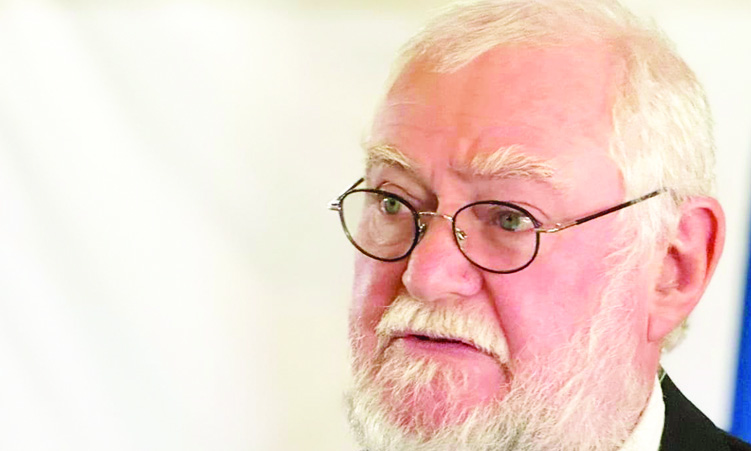Three judges of the High Court have declared the wide-reaching definition of “proceeds of unlawful activity” in the Prevention of Organised Crime Act as unconstitutional, because it includes property unconnected to crime but which was mixed with the actual proceeds of crime.
The judges made the finding about the act’s definition of “proceeds of unlawful activities” in a judgement on a constitutional challenge filed by a Windhoek couple after the prosecutor general (PG) obtained a court order that in effect froze a bank and investment account belonging to them.
The act’s definition of “proceeds of unlawful activities” says that includes property mingled with property that is the proceeds of unlawful activity.
There are no constitutional reasons or rational basis to include lawfully acquired property in property obtained through unlawful activities, High Court judges Thomas Masuku, Herman Oosthuizen and Hannelie Prinsloo state in a judgement in which the definition of “proceeds of unlawful activity” has now been declared unconstitutional.
The judges concluded that the definition in the law “is arbitrary and deprives owners of lawfully acquired property of their rights to that property without providing sufficient reasons therefore”.
They also stated: “We are of the view that the forfeiture of lawfully acquired property is akin to an expropriation of property without just compensation, which is constitutionally prohibited and is not in the public interest.”
Windhoek resident Martin Shilengudwa felt the effect of that definition when money he had saved in a bank account was in effect frozen under a property preservation order in terms of the Prevention of Organised Crime Act, together with funds that PG Martha Imalwa claimed were the proceeds of crime allegedly connected to the sale of a property that belonged to Shilengudwa and his wife.
The PG was granted a property preservation order over a bank account and investment account in the name of Shilengudwa after he and his wife, Hilma Shilengudwa, sold an immovable property in Katutura in Windhoek to the Business and Intellectual Property Authority for an allegedly inflated price of N$18 million in 2017.
After the sale, Shilengudwa received a sum of about N$16,9 million in his bank account at the start of September 2017, while about N$1,03 million was paid into an account of his wife. Before the proceeds from the sale of the property were paid into his account, Shilengudwa also had about N$5,4 million in the account.
After he received the proceeds of the property sale, Shilengudwa transferred N$13 million from his bank account to an investment account.
In an affidavit filed at the Windhoek High Court, Imalwa alleged there were reasonable grounds to believe the money that the couple received from the sale of their property was the proceeds of unlawful activities, including fraud, contraventions of the Public Procurement Act, the Bipa Act, the State Finance Act and the Anti-Corruption Act, and money laundering.
She recounted that the property sold by the couple had a valuation of about N$4,3 million, but was sold to Bipa for N$18 million. Imalwa also alleged that the then chief executive of Bipa, Tileinge Andima, did not have the required authority to conclude a sale agreement with the couple and to request the transfer of funds from the then Ministry of Industrialisation, Trade and SME Development to pay for the property.
The couple filed a constitutional challenge focused on the definition of “proceeds of unlawful activities” in the High Court after Imalwa obtained a property preservation order over the funds in Shilengudwa’s bank and investment accounts in May 2018.
In a joint judgement delivered on Friday last week, judges Masuku, Oosthuizen and Prinsloo concluded that the challenged definition does not pass the test when measured against the Constitution’s protection of property rights.
The three judges noted that the effect of the wide reach of the definition of “proceeds of unlawful activities” is that the money that was in Shilengudwa’s bank account before the proceeds from the property sale were paid into the account stands to be forfeited under the Prevention of Organised Crime Act, although there is no allegation that the funds initially in the account were the proceeds of illegal activities.
The judges stated: The court ordered the respondents in the case, including the PG, the minister of justice and the attorney general, to pay the couple’s legal costs in the matter.
Senior counsel Raymond Heathcote, assisted by Japie Jacobs, represented the couple in the constitutional challenge.
The PG was represented by senior counsel Geoff Budlender, assisted by Marius Boonzaier.
Stay informed with The Namibian – your source for credible journalism. Get in-depth reporting and opinions for
only N$85 a month. Invest in journalism, invest in democracy –
Subscribe Now!






